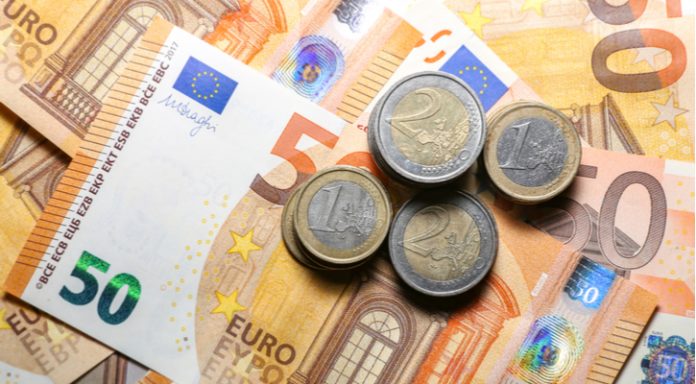- Pound (GBP) rises as the housing market improves
- House prices rise 1.6% in March
- Euro (EUR) falls after inflation falls to 2.4%
- The data supports a June rate cut
The Pound Euro (GBP/EUR) exchange rate is rising after three days of losses. The pair fell just -0.01% in the previous session, settling on Tuesday at €1.1679 and trading in a range between €1.1663 and €1.1709. At 10:00 UTC, GBP/EUR trades +0.05% at €1.1685.
The pound is heading higher after data showed that the UK housing market is coming back to life.
According to the Nationwide Building Society, Britain’s largest mortgage lender, house prices rose by 1.6% in March compared to a year earlier and after annual growth of 1.2% in February.
Although housing market activity has picked up since the end of 2023, it remains subdued by historical standards.
House prices are still rising more slowly than wages, which are up around 6% from a year ago, which means affordability constraints should gradually be easing.
Meanwhile, mortgage approvals are on the up, with UK lenders approving the most mortgages since September 2022. In February, 60,383 mortgages were approved for house purchases, an upward revision from 56,087 the previous month and also ahead of forecasts.
With expectations that the Bank of England will start cutting interest rates in June or August, mortgage rates are starting to ease, making affordability less of a problem.
The euro is trading under pressure after eurozone inflation fell by more than expected to 2.4% year on year in March, boosting expectations that the ECB will start cutting interest rates this summer.
Consumer prices had eased from 2.6% in the previous month and were also below expectations of 2.5%. Core inflation also slipped lower, cooling from 3.1% percent to 2.9%. However, inflation in the service sector, which is a key area for the ECB, remained sticky at 4% for a fifth straight month amid ongoing pressure from wage growth.
The data supports the view that the ECB will start cutting interest rates in June, which also reflects recent messaging from ECB policymakers.
Today, ECB policymaker Hoffman indicated that the central bank could start cutting rates in June as inflation is falling quicker than expected. However, the Austrian policymaker warned that the ECB should not get too far ahead of the Federal Reserve as it risks diminishing the impact of easing.





